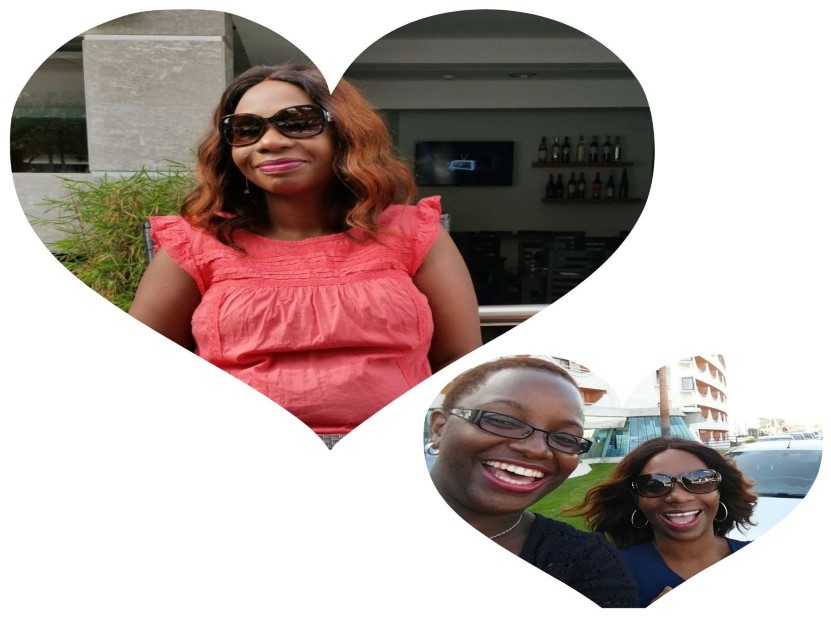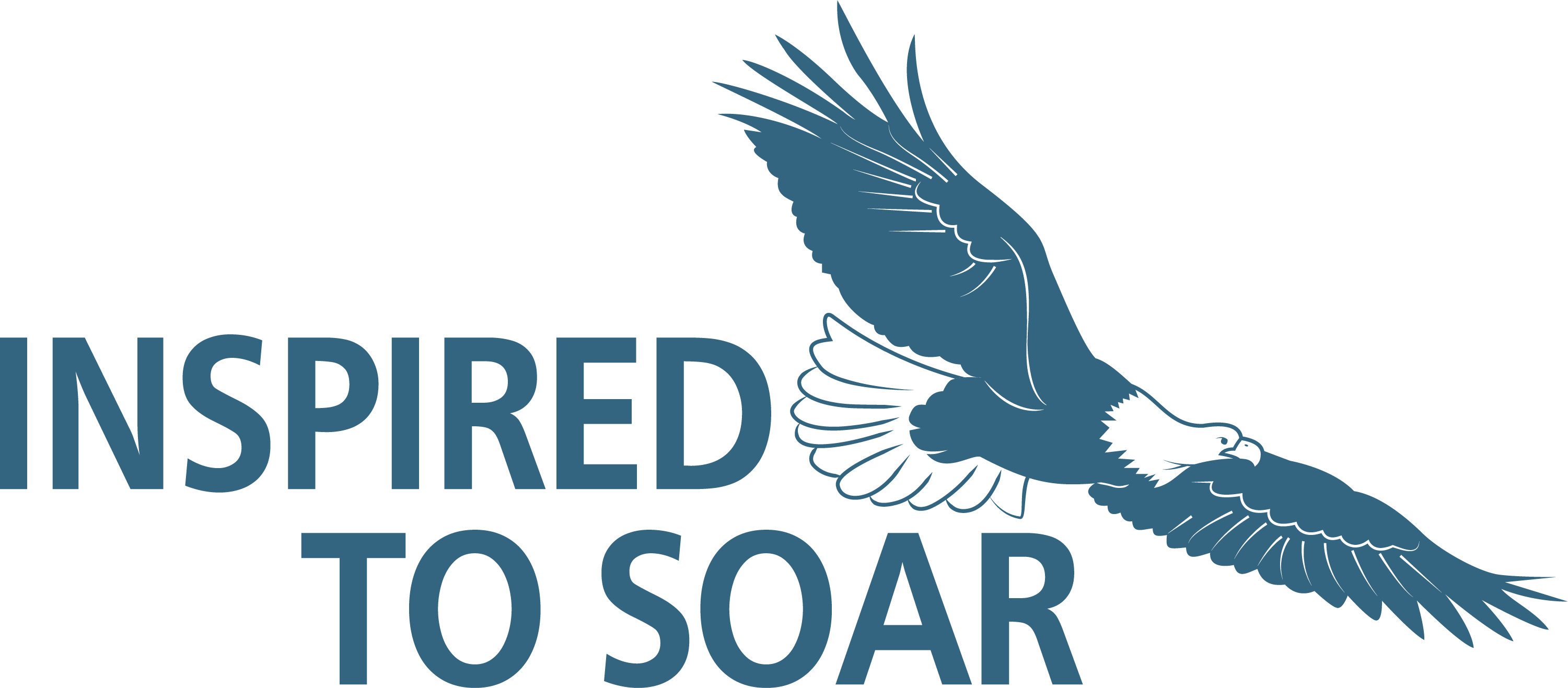
by Bami | May 5, 2025 | Health Equity
“It is a sad reality that in an atmosphere of ignorance, myths and superstitions abound to the detriment of the society. In those days, many attributed an illness like breast cancer to the workings of wickedness and evil spirits, adding a layer of stigma to already traumatic circumstances. Even with well-educated people like my father (who had spent over a decade in the UK) subconsciously bought into the falsehood, indirectly blaming the patient for some perceived wrongdoing which had brought on such a dreadful disease”.
- Excerpt from Navigating Your New Normal: A Road Map For Life Fulfilment After Trauma.
The above excerpt from my book describes my first experience of stigma in relation to illness. For context, this took place in Nigeria over three decades ago when there was a lack of understanding about illnesses such as cancer, mental illness or disability of any kind. At the time, I was a 13-year-old who had the responsibility of looking after my mum after her breast cancer diagnosis as well as pick up the slack of housekeeping.
I vividly remember that from the get-go, my mum’s diagnosis was viewed as something to be ashamed of and therefore hidden as much as possible. The secrecy, fear and anxiety were huge burdens on my siblings and I with no avenue for support. For my mum as the patient, her acute pain went beyond the physical. I remember thinking as a teenager that surely this was not the way to live, and I determined to choose differently when I was older.
You might be wondering why I have chosen to talk about one of the most traumatic experiences of my childhood. It is because the detrimental impact of stigma around certain illnesses is still blighting the lives of many denying them access to support, compassion and in a lot of cases, timely treatment to adequately manage their conditions.
You would be forgiven that in this age of technological advancement and proliferation of information, shaming people for medical conditions that they did not choose would be a thing of the past. Alas, that is not the case. The manifestations of stigma might look different today, but the impact is just as damaging to patients and their loved ones. Whether we’re talking about a cancer patient here in the UK who is shunned by relatives or someone with epilepsy in another country told that they are to blame for their medical condition, the pain that people feel are exacerbated leading to isolation and shame.
As I referred to in my book, stigma is not a respecter of educational attainment or economic status. This is because it is deeply rooted in cultural norms and perceptions of what is deemed as acceptable illness versus what is not. Against this backdrop, it is vital for healthcare professionals to have an insight into its impact on the patients they care for. You cannot separate their environment and lived circumstances from the way they choose to deal with their medical conditions.

What drives stigma?
Within the context of health, some of the drivers of stigma include fear and misinformation, cultural norms and values, myths and religious beliefs, silence and secrecy, desire for belonging.
Fear and misinformation
One of the biggest drivers of stigma about illness is fear and misinformation. With illnesses that are not easily understood within a culture, the initial reaction is fear which many do not want to acknowledge because of perceived weakness. They also may not be able to even articulate their feelings having spent a lifetime masking the dread and worry. This then opens the door to misinformation passed down through stories and narratives that reinforce untruths. For example, there were stories I heard before my mum’s breast cancer diagnosis attributing the illness to the work of evil spirits. These stories were repeated uncritically by many well-educated people like my father, thus showing how insidious stigma can be.
Cultural norms and values
In all cultures there are notions of what is perceived as “normal” versus “abnormal”. Some of these are openly shared whilst others are covert. These of course are subjective and can be difficult to understand by those outside of said culture. However, illnesses that cannot be easily explained or understood are labelled as aberrations and therefore seen as justification for stigmatisation. This then leads to avoidance, pretense or shunning those involved to keep up appearances.
Myths and religious beliefs
In many instances, cultural norms are interwoven with religious beliefs which fuel myths about illnesses like cancer, mental illness, epilepsy or disabilities in general. As noted above, if the cause of a condition is attributed to unseen malevolent forces, it is then deemed a spiritual problem as opposed to a medical one. This then means that the opinions of religious leaders who often have limited understanding of these conditions hold sway over medical advice. As such, those affected might delay seeking treatment or not fully take onboard medical advice. This then leads to poorer life experiences or even untimely death.
Silence and secrecy
One of the things that perpetuate stigma is the code of silence and secrecy fed by shame. I can still remember the instructions I had not to speak to anyone about my mum’s illness and to ensure that she is hidden away in the bedroom before anyone stepped foot in my childhood home. As time went on, my mum got used to it such that anyone knocking on the door would be her cue to leave the living room and retreat to her bedroom not surfacing again until said person had left. Such actions leave a lasting negative imprint reinforcing the notion that breast cancer was something to keep hidden be ashamed of.
Desire for belonging
Within every human being is the desire to belong. This is particularly strong within the communities we call our own. As referenced above, there are explicit and implicit rules or standards for the way things should be or how people should live. In order to remain accepted within these communities, most people do not challenge the set ideas of which stigma is a part thereby perpetuating it. This unfortunately further isolates people with such medical conditions robbing them and their loved ones of much-needed help and support. For the duration of my mum’s illness until her death, this was our experience as a family.
Why this matters for healthcare professionals
It is impossible to deliver equitable, person-centred care without an insight into the lived context of its recipients. Stigma would have already stripped people of dignity, self-worth and sometimes the will to live by the time they encounter most healthcare professionals. Add to the mix the imbalance of power dynamics in the clinical settings and you get people who are unable to take on board treatment requirements nor advocate for themselves.
Rather than view them as uncooperative and difficult, I implore healthcare professionals to seek to understand the reasons for their behaviours then share power with them. By reassuring them that they matter, are deserving of kindness and compassion, this would go a long way in restoring dignity, paving the way for cooperating fully with treatment and self-management instructions.
Within the UK context, let’s not discount people’s lived experiences of interpersonal and institutional racism. It is incumbent healthcare professionals to come alongside patients they see as active allies who support them in advocating for themselves. That goes a long way in restoring dignity and humanity of each person.
It is the right of every person to be treated thus regardless of their medical condition or background.
Dear healthcare professional, I implore you to take this post as a reminder to think differently so that you do not inadvertently exclude people who live with the undue burden of stigma on top the challenges of their medical conditions.

by Bami | Feb 25, 2022 | Uncategorized
The overwhelm after cancer diagnosis is real as any cancer patient or ex-patient can attest to. However, it doesn’t have to crush you.
If you’re serious about wanting to thrive without overwhelm, here are 6 steps that would help.
During times of overwhelm, it can seem that the last thing you need is any talk of focus after all, the feeling of being snowed under by different challenges is real. Picture a house falling on top of you and trying to dig your way out from underneath the rubble. I can totally relate.
Even years after breast cancer diagnosis and multiple surgeries, I have gone through periods when the late effects of treatment and medication have felt like an avalanche of issues. I have found that digging my way through difficulties did not happen overnight as there is no magic bullet.
With support and resolve, I discovered that if I didn’t choose my focus when overwhelmed, nothing changes mentally, physically or emotionally.
The same is true for you.
The good news is that you can regain a sense of calm and semblance of order as you navigate your way to a thriving future.
Use the steps below as often as you need to. Write them down in your journal for future reference.
Step # 1 – Acknowledge the sources of the overwhelm
- Identify the things you find challenging at present.
- Make a list of all the difficulties that are causing you to feel overwhelmed.

Blue sky by Masaaki Komori Unsplash
Step # 2 – Ditch pretense of any kind
- Set aside the need to pretend that all is okay.
- Living with a mask on is exhausting.
Step # 3 – Number your list in order of importance to you
- There are often many things resulting in overwhelm.
- Prioritising in order of importance frees you to tackle ONE thing at a time.
- Finish one thing before going on to another.
Step # 4 – Don’t use someone else’s yardstick to assess yourself
- Your journey is different to others even if diagnosis is the same.
- The opinion of others can become a prison if you have different ideas.
Step # 5 – Take inventory of your community
- Assess the kinds of people in your close circle.
- Choose truth tellers who would support, love you and believe in who you are becoming not who you used to be.
- Ask for support and accountability.
- Seek professional help as often as required.
Step # 6 – Believe in yourself
- What you think of and about yourself matters.
- Believe that you have the strength, courage and resilience to thrive with support.
My suggestion to you now is to schedule distraction-free time to tackle overwhelm and focus on what truly matters to you.
Hey, by the way, if you really want to your own map for thriving after cancer, my book, Navigating Your New Normal is a good map to start with. Get your copy at: https://amzn.to/3IDV3GV

by Bami | Feb 10, 2022 | Uncategorized
For a long time, I used to wonder why no matter how hard I tried, there were some things I couldn’t seem to get off the ground even though I wanted to. In theory I knew how important being focused was yet I could only apply it to some areas of my life. I thought outside distractions were my only problems and that I would be fine if I could shut out outside noise.
Over the last couple of years, I came to the realisation that I was going about things the wrong way round. I was trying to focus on my actions first without dealing with the negative chatter in my head courtesy of my gremlin.
Once I started looking deep within, I realised that staying on course to consistently achieve what I want can only happen when I believe that I can. It didn’t matter how many people reminded me of my capabilities if I doubted them. You might be wondering what this has to do with focus – everything.
I now have a totally different approach to how to stay focused which I’ll now share with you.
But before we go any further, this isn’t a post to skim read whilst you’re busy doing something else. That would totally defeat the purpose. If necessary, save this page then come back to it when you are ready to do some self-reflection without interruptions. Schedule 30 minutes for it – as a matter of priority. You would need a journal and pen. Put your electronic gadgets away.
Now you are ready to begin.
You would ask yourself some questions and be 100% honest with your answers. Remember that your journal is a non-judgemental confidant.

Focus by Cameron Ballard, Unsplash
1. Identity
Who do you think you are?
I promise you that is NOT a challenging question. It is a probing one for you to articulate how you view the essence of who you are. In general terms, people tend to identify themselves through the lenses of roles, responsibilities and functions. This is not necessarily a bad thing when life is smooth sailing. However, cancer disrupts and roles change. This can cause you to be shaky about who you are. The natural tendency is to avoid such introspection. I encourage you to lean into it. Write down whatever comes to mind, don’t overthink it.
Example: are you a friend, mother, sister, executive, businesswoman etc?
2. Self-image
What do you see when you look in the mirror? What do you think of the person staring back at you? It is fair to say that most cancer treatments leave marks on you be it physical or psychological. These would shape how you see yourself even if you were previously 100% body confident.
Example: In the first few months after my mastectomy, all I could see were my scars showing how much my body had changed. For as long as I saw them as messy and unsightly, I felt ugly. This battered my self-esteem until I went to speak to a therapist. I then reframed them as marks that show what I have lived through and came out on the other side thriving. Now I speak words of affirmation to myself.
3. Self-worth
What do you believe you deserve and are worthy of? This is one of those questions that you should ask yourself on a regular basis. A traumatic experience like cancer diagnosis shatters your life and you’re left picking up the pieces. In the first few months, getting through treatment feels like a herculean task. Do you believe you are worthy of being loved and pampered? OR Do you feel like you are being a burden on your loved ones?
Whichever answer you choose would determine what you ask or settle for.
Example: Before my multiple surgeries, I used to feel like I was a burden whenever I asked for help as a single parent. I didn’t feel worthy of being cared for. This became a huge stumbling block as I felt even more miserable whenever I needed support. With the help of truth tellers, I learnt how to accept assistance with grace and speak to myself as I would to someone I love.
4. Self-confidence
What are you capable of? What do you think of what you have done?
The side effects and long-term impact of treatment are widely varied. Whilst there are commonalities like fatigue, pain, impaired memory to name a few – the ways these manifest and length of time differ from one person to the other.
It is vital to be candid about what you can do without comparing your experience to that of someone else who appears to have had exactly the same diagnosis.
Example: I remember immediately after my breast cancer diagnosis, I told my nurse that I would love to try a marathon in 5 years. She smiled and told me to take things step by step. That idea came from some of the blogs of thrivers that I had read who went on to do similar things raising money for charities after cancer diagnosis. The truth was and still is, I have never liked running. 7 years on with osteoarthritis in both hips as a result of medication, I have zero interest in running a marathon in the near future. However, walking for over 2 hours makes me happy on days I can do that. This along with other exercises that I can do – improves my fitness which is my aim.
Being aware of negative self-talk is vital, after all, whatever you focus on shapes your life, what you do, what you say Yes or No to.
Once you are done, replace the negative statements you have made about yourself with positive ones.
This is NOT about being delusional or living in denial. Rather it is about building yourself up within so that you focus on what serves the thriving future you desire.
You are worthy of love.
You are unique.
It is okay to want more and celebrate your victories.
You’ve got this.

by Bami | Jan 26, 2022 | Uncategorized

Treasured memories
Exactly 5 years ago, I ran out of time with one of the most important people in my life – my big sister, Titi. Losing her to metastatic breast cancer rocked our world as a family.
For me personally, losing her was the biggest fear I had because I simply couldn’t see through to a future without her. When the very thing you feared the most happens, it forces you to dig deep within to find out what anchors you. My faith in God was what ensured I was tethered to hope even in those early dark days. I knew there was no use pretending that I could handle my raging emotions on my own. Therapeutic support through Maggie’s Cancer Centres and a strong community were my lifelines.
Over these few years, I have learnt so much about myself, others and what I am truly made of. This was not my first rodeo with family loss – having lost my mum at the age of 17 – but this hit differently as it came at a time of deciding to stop hiding my light.
I have written before about grief being the unwanted permanent lodger. The immediacy of loss is one of the dark threads woven into the tapestry of life. One thing I have come to realise though is that interwoven with the dark are also bright threads – these together show off the beauty of the whole picture over time. Cancer is a rogue for certain, one I wished had never touched my life and that of my family in any way. However, accepting what I had no control over has made clear that there are things I have the power to change.
I am choosing to make a positive difference daily. Whether this is speaking on behalf of patients who cannot speak for themselves; teaching medical professionals, helping women thrive after cancer, facilitating open conversations in my community or tackling health inequities head on – I am taking ownership of my response.
To be very clear, the pain of loss is one that I would always carry with me but I can smile through my tears, grateful for the laughter, joy and beautiful memories – treasures that are now mine for keeps.
Today, I get the opportunity to share my story and lessons with healthcare professionals on the Understanding Cancer Care Module at Cardiff University. The title of my talk is: “I am here to make things better”.
To me, this is a fitting tribute to both my sister and mum, ensuring that the experiences and outcomes of other cancer patients are improved.
That is a privilege I don’t take lightly at all.
Not a day goes by that I don’t miss Titi.
Indeed, she would never be forgotten. My first book, Navigating Your New is dedicated to her.
Get your copy at https://amzn.to/3IDV3GV
If your life has been touched by grief especially as a result of cancer, know that you don’t have to suffer in silence. Get help and support as often as you need through the messy process. How you deal with the pain of loss is not prescriptive – it is unique to you. Avoid the pitfall of comparing your journey to that of someone else. With a supportive community around you, the pain would ease in time.
Breathe and take one day at a time.
You’ve got this.

by Bami | Jan 12, 2022 | Uncategorized
With January well underway, how are you feeling about 2022 and what it has in store for you?
If you are like most, you would have started the year with the hope that the disruption and uncertainty of Covid-19 would fade away as soon as possible.
Over the last couple of years, New Year resolutions have got a bad rap as most are abandoned within the first 3 weeks of January. Instead, the advice is that you choose goals that are sustainable and you are more likely to stick with in the long run. When you have been through a traumatic experience like cancer diagnosis, some of these “words of wisdom” represent a reality that you can no longer relate to.
I totally get it. Dealing with the cancer new normal is a journey that can often throw curveballs when you least expect. Let’s try a different approach.
Where are you headed this year and why? Yes, I know that’s one of those questions that someone asks and you feel like a deer caught in the headlights. No need to panic. Breathe…

One of the best pieces of advice I have received over the last few years is to start with the end in mind. By that I mean 31st December 2022. What are the things you want to have done or made room for by that date? If that’s too daunting or scary because of your current prognosis, replace the date with a more manageable one like 31st March 2022 (end of the first quarter). Starting with the premise that you want to thrive this year, you have to get a sense of your direction and desire.
At the start of any journey, it is important to know where you want to end up even though you have never been there before. This is why maps and navigational systems have been in use for millennia ensuring that in spite of adverse weather conditions people can re-route and find their way back to their desired destinations. How does this apply to your situation in practical terms?
Before you start, you need a journal as a reflective tool. Whether you use pen and paper (my personal preference) or an electronic device, ensure that you will not be distracted for at least half an hour.
Desire: your internal compass for thriving
When it comes to figuring out what kind of year you want, direction and desire are interwoven. Going back to the earlier question, for each area of your life, write down TWO things each that you want to have done or made time for by the date you have set. The different areas would include personal, professional, wellbeing and so on depending on the categories that you choose for your life. The point to bear in mind is not to neglect any part of your life. Don’t take too long on this part of the exercise – no more than 10 minutes.
To be clear, this is not an easy exercise to do and here’s why. When the chaos of cancer disrupts your life, it forces you to reassess what is important and what is not. The toll it takes on your body and mind can also temporarily rob you of your dreams. It can then be easy to slip into making do and not asking for too much of life. That is the definition of mere survival – a bland, colourless and dreary existence.
That is meant to be a bus stop. Don’t make it your destination!
The reality of life is that you can either live by default or intention. Going back to the journey analogy, imagine taking a boat out to sail without having any destination in mind. It is fair to say that the vessel would be at the mercy of the prevailing winds and currents. Before too long, it would be drifting aimlessly tossed every which way – an unsatisfactory place to be.
Looking at the list you have written, ask yourself another question: have these been shaped by outside circumstances OR your true desires ? If the answer is the former, ask yourself, “would I be happy if I stick with this list as it is?” If the answer is no, you can change and it is up to you to do so.
In order to get to a destination that is fulfilling, it is vital for you to be guided by the internal compass of what you desire. This is so important in the uncertain days that we are living in. There are paths that are okay for others but may be totally unsuitable for you. When there are multiple options to choose from, knowing what you truly want takes the stress out of decision-making.
The thing with outward circumstances or prevailing winds is that they are subject to change with little or no notice. The internal compass of what you truly desire is the best guide to keep you on course towards a thriving future.
That is the destination to aim for in 2022.







